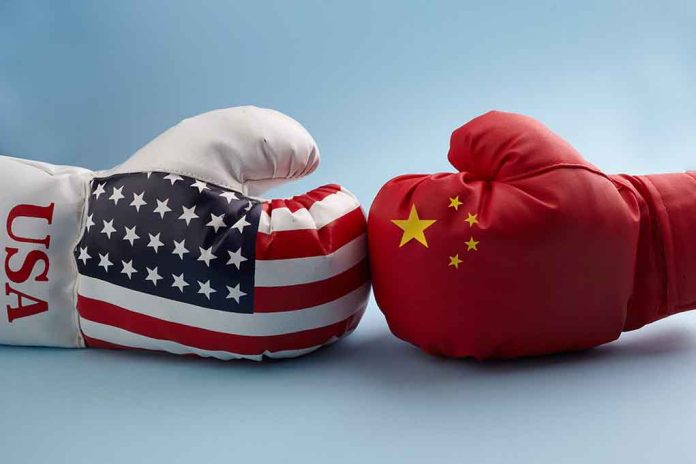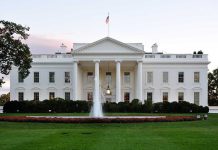
A vigilant mother’s search for American-made bedding exposed a massive fraud by Pottery Barn Teen, leading to a record $3 million penalty against Williams Sonoma for falsely labeling over 800 Chinese-made products as “crafted in the USA.”
Key Takeaways
- The Federal Trade Commission requires products labeled “Made in USA” to be “all or virtually all” manufactured domestically with American-sourced components.
- Williams Sonoma paid a record $3 million civil penalty after falsely marketing over 800 foreign-made products as American-made across their websites.
- Misleading terms like “Crafted in USA” and “Assembled in USA” often indicate products that contain significant foreign components or labor.
- Consumers should read labels carefully, look for exact “Made in USA” wording, and verify claims through direct company contact.
- A watchdog group called Truth in Advertising plays a crucial role in identifying and reporting deceptive labeling practices to federal authorities.
When “Made in USA” Actually Means “Made in China”
American consumers seeking to support domestic manufacturing and ensure product quality often look for the “Made in USA” label when shopping. But as Mary Schubart discovered, those patriotic intentions can be exploited by companies using deceptive marketing tactics. When Schubart needed mattress pads for her twins, she specifically sought American-made products, prioritizing both safety standards and support for the local economy. She purchased items from Pottery Barn Teen that were advertised as “crafted in the USA,” only to discover they were actually manufactured in China.
This discovery prompted Schubart to contact Truth in Advertising, a nonprofit watchdog group that monitors false advertising claims. The organization had previously flagged Pottery Barn Teen’s parent company, Williams Sonoma, for similar deceptive practices. What followed was a revelation that the deception extended far beyond a single product. Investigators found that in 2019 alone, over 800 products were falsely marketed as American-made across Williams Sonoma’s family of websites, which includes Pottery Barn, West Elm, and Williams Sonoma Home.
Record Penalties and Continued Deception
Following Schubart’s complaint and the subsequent investigation, Williams Sonoma faced a record $3 million civil penalty from the Federal Trade Commission. This unprecedented fine highlighted the seriousness of the violation and sent a clear message to other retailers about the consequences of misleading American consumers. When confronted, Williams Sonoma attempted to downplay the systematic deception, attributing it to an “administrative mistake” and issuing an apology with promises to improve their processes for verifying product origins, Stated Williams Sonoma.
The case against Williams Sonoma is not isolated. Currently, Reynolds Consumer Products faces a lawsuit challenging its “Made in the USA” label on aluminum foil products. The suit alleges that Reynolds uses significant amounts of foreign-sourced raw materials, which would violate the FTC’s strict requirement that products labeled as American-made must be “all or virtually all” manufactured domestically, with all or virtually all components sourced within the United States. These ongoing cases demonstrate that deceptive labeling remains a persistent issue across multiple industries.
How Patriots Can Identify Genuine American Products
For consumers committed to supporting American manufacturing, identifying genuine domestic products requires vigilance and attention to detail. The first step is understanding the terminology. The phrase “Made in USA” has specific legal requirements enforced by the FTC, while vague terms like “Crafted in USA,” “Designed in USA,” or “Assembled in USA” often indicate that significant portions of the manufacturing process or materials originate overseas. These terms serve as red flags that warrant further investigation before purchase, According to The Federal Trade Commission.
Serious American consumers should develop the habit of reading labels thoroughly, checking the actual country of origin information that is legally required on products. When shopping online, scroll all the way to the product specifications section where origin information is typically listed. For products without clear labeling, contacting the manufacturer directly can provide clarification. Many authentic American manufacturers proudly provide detailed information about their domestic production processes and are transparent about their supply chains.
Third-party verification can also provide additional confidence. Organizations like Made in USA Certified® offer independent verification of American-made claims. Additionally, industry-specific certifications often include country of origin information that can help consumers make informed choices. By taking these extra steps, patriotic shoppers can ensure their purchasing dollars genuinely support American workers and the domestic economy rather than lining the pockets of companies that profit from deceptive marketing of foreign-made goods.




